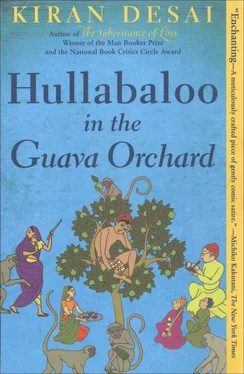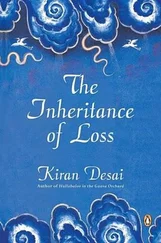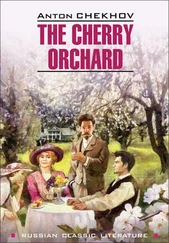He was being seduced, he realized in a flash of terror. They were trying to brainwash him, using the equivalent of jingles and suave advertising. He had spent far too long in the orchard. In fact, to tell the truth, he had found he was enjoying his time there.
As soon as this thought occurred to him he was doubly terrified. He had better solve this case immediately and get out of the orchard as quickly as possible.
Keeping what he hoped was an unsuspicious distance, the spy tried not to lose sight of Kulfi as she sometimes ambled, sometimes darted up the hillside, showing no more concern for following a path than a bee.
Kulfi was beginning to feel a little tired of what she had been finding in the forest. She looked under a rock, by a tulip tree, along a stream. She needed a new ingredient, she thought, sniffing the air, something exciting and fresh to inspire her to an undiscovered dish, a new invention. She looked up into the sky.
Already she had cooked a pigeon and a sparrow, a woodpecker, a hoopoe, a magpie, a shrike, an oriole, a Himalayan nightingale, a parrot … She had cooked a squirrel, a porcupine, a mongoose, all the wildfowl that could be found in those parts, the small fish in the stream, the round-shelled snails that crisscrossed the leaves with silver, the grasshoppers that leapt and jumped, landing with loud raindrop-like plops upon the foliage.
Diligently, she searched for a new plant, a new berry, a new mushroom or lichen, fungus or flower, but everything about her looked familiar and dull. No new scents enlivened the air and she wandered farther and farther away. As she wandered, she began to daydream.
She was the royal cook of a great kingdom, she imagined. There, in some old port city, ruthless hunters, reckless adventurers, fleets of ships and whole armies lay at her beck and call, were alert to her every command, her every whim. And sitting in a vast kitchen before an enormous globe, imperiously she ordered her supplies, sent out for spices from many seas away, from mountain ranges and deserts that lay beyond the horizon, for spices that existed only in the fantastical tales of sailors and soothsayers. She sent out for these and for plants that grew on islands no bigger than specks in the ocean, or on mountain peaks devoid of human habitation. She sent out for kingdoms to be ruined, for storehouses and fields to be plundered and ransacked. She asked for tiger meat and bear, Siberian goose and black buck. For turtles, terrapins, puff adders and seals. For armadillos, antelopes, zebras and whales. She demanded elephants, hippopotamuses, yaks and cranes, macaques and … monkeys! Monkeys! Oh, to cook a monkey!
Into the bamboo, past the green and yellow banana grove, out through the nettles, up to the hilltop. Exhausted and bedraggled, the spy gave up trying to follow her and climbed a tree from where he hoped to be able to keep up his watch. But, of course, he promptly lost sight of her altogether as she vanished around the curve of some rocks.
Far from being deterred by the public disapproval that had been expressed after their drunken orgy, the monkeys kept busy demonstrating how this was no isolated incident to be easily dismissed but, on the contrary, a whole new way of life for them.
Ammaji chased them from dawn till dark, assisted by her battalion that was sprinkled about the orchard, each person being allotted a daily ration of pebbles and a slingshot made by herself out of sticks and lengths of inner tubing she had rescued from old tyres. Everywhere you looked there was someone running through the trees as if involved in an archaic exercise in weaponry, letting the pellets fly. But nowadays the monkeys merely shrugged them off, realizing they did not really hurt, and instead the devotees themselves suffered many injuries, what with stones flying backwards instead of forwards and hitting them in the face.
When the monkeys were not in the orchard or the bazaar, they took to waiting in the trees growing by the market road and accosting people on their way home from the bazaar in the hopes of finding a bottle of toddy or even rum. Leaving their victims in a mess of apples, ladyfingers, Postman oil and who knows what other supplies, they bounded away unconcerned about the damage they had caused, contented if they had been successful, but still on the look-out for other victims if they came away empty-handed. It became dangerous to walk through the area alone, and people who lived there organized special groups to go shopping together. They kept their windows and doors closed, saying their prayers as the monkeys bounded over their tin rooftops with a vast crashing sound of thunder. They tried never to be by themselves in any exposed location. Despite these precautions, in a sad event that took place in a private garden, two young men drinking to their success in the university examinations were bitten and taken to the local hospital with monkey-teeth marks upon their arms.
A monkey bite can prove to be as dangerous as a cobra bite in that monkeys often carry rabies, which can, of course, be as deadly as snake venom. Rabies is one of the worst illnesses a lady or gentleman can contract. It is more common in the summer than in the rainy season … With his usual dramatic flair, Dr Banerjee published a whole-page article in the next day’s paper on the subject of monkey bites.
Immediately there was an uproar. Moaning in fear for his own safety, the Chief Medical Officer tried to do his duty and issued his own statement saying that as yet there was no problem with rabies, and under no circumstances should anybody succumb to panic-mongers and antisocial elements. They would persevere towards a working solution to this delicate problem.
Then, as if to undo any sense of calm that might result at this assurance, the Hanuman Temple took this opportunity to compose its own combative statement, officially joining the furore and expressing outrage at the indecent treatment of these monkeys. Clearly, forces bent on corrupting great Hindu traditions were at play, they said. They would sacrifice themselves for the religion’s good name, if necessary.
Reading this, the Superintendent of Police, the Brigadier and every politician for miles around shook with renewed terror, realizing that they were in for a severe law-and-order problem of the worst religious degree.
‘Some fruit must be eaten with the skin,’ said Sampath.
‘If you cannot find a car, you must do without.’
‘If you do not find a bottle of rum, you will not drink a bottle of rum.’
‘If your Auntyji finds a lump of silver, she might very well keep the lump of silver.’
‘If your two-year-old son behaves badly, you will not think to exchange him for another. No, instead you will wait until he behaves better …’
But, he realized, he was losing the heart to carry on, and nobody was paying any real attention to what he said any more.
Below his tree, two fervent camps of devotees had been formed: one was adamant that the monkeys be removed so as to save the Monkey Baba and the holy atmosphere of his hermitage; the other was furious that these sacred animals were to be thus humiliated and turned from their rightful home. The battle lines had been drawn and everybody even remotely associated with the dispute felt compelled to involve themselves and make their voices heard. Sampath himself was forgotten in the fray, although his name was bounced back and forth between the warring factions like a ping-pong ball. Fairly spitting at each other, barely able to contain their wrath, their indignation and alarm, they fought from the minute they were allowed beneath Sampath’s tree to the minute his visiting hours were over.
‘How can you ask the monkeys to leave?’ said Miss Jyotsna to everyone she met, supporting Sampath’s point of view with loyalty.
Читать дальше












